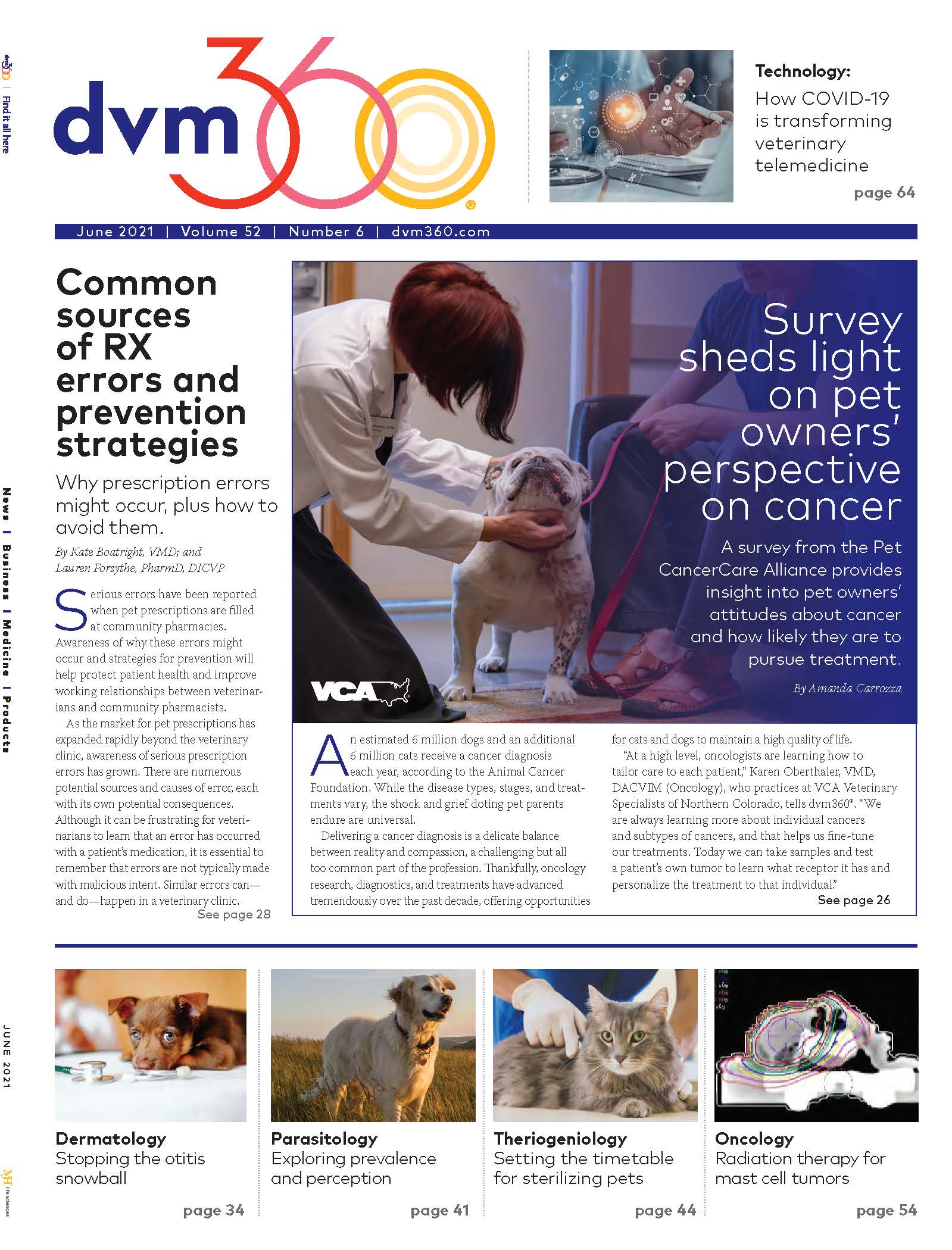With technology taking the veterinary profession by storm, innovation and adaptability have become integral to most practices. Despite the accelerated rate of job consolidation within the field, Bash Halow, CVPM, LVT, owner of Halow Consulting and member of dvm360® Editorial Advisory Board, believes this is a golden age for career opportunities.
At a recent Fetch dvm360® virtual conference, Halow highlighted careers that may dissipate with time and those that could emerge, showcasing opportunities that may take a bit of adaptability and reinvention in a consolidated job market.
Out with the old
Client service representatives
During the COVID-19 pandemic, a wave of online technologies designed for practices to adhere to social-distancing restrictions arrived. Virtual scheduling technologies and telemedicine apps have gained momentum, reducing the need for client service representatives (CSRs). “These telemedicine apps can eliminate time-consuming, less-engaging parts of clients service like appointment confirmation, the check-in process, collecting previous medical records, creating payment plans, and the length of time it takes to leave messages by replacing answering machine messages with two-way texting,” said Halow.
Why use a telemedicine app?
Bash Halow, CVPM, LVT, owner of Halow Consulting and dvm360® Editorial Advisory Board member, says there are benefits to switching your practice to telehealth, including:
- Clients can send patient history forms electronically to the team before arriving.
- Staff can be notified via the app when a patient has arrived and is awaiting care.
- The team can have 2-way text conversations with clients.
- Virtual video conferences with clients can be arranged.
- Clients can schedule their appointments online.
- Client reminders, confirmations, and push notifications can be sent.
- Laboratory diagnostic results can be shared electronically with the veterinarian and client.
Social media users
Most practices that rely on their employees for in-house social media are actually being limited in their online visibility, Halow said, especially with the increasing competition. “In order to get real traction on social media, you have to get a lot of visibility and a lot of followers, and 1 way to do that is by cross posting a lot of information across various platforms (such as) Twitter, Facebook, and Instagram,” he added. As many practices do not have the staff with the ability to gain competitive results, Halow suggests outsourcing that responsibility to a social media expert.
In with the new
On-demand veterinary support trainers
Experienced veterinary professionals looking for a work-from-home position should consider utilizing their skills to produce a virtual training curriculum for client care representatives and assistants, Halow said. This position would provide training live or on-demand for veterinary teams on a broader scale.
“[On-demand veterinary training] is already in existence, but a lot of you are trying to manage training in-house. If you’re building it from the ground up, I don’t recommend doing that. There are companies out there that are already providing excellent baseline education for team members, and you can even follow it through with checklists,” Halow advised.
Independent contractors
Practice managers who are looking to hone their management skills from home should investigate being a 1099 employee (self-employed independent contractor). “High-level oversight of small-to-medium veterinary practices is not a 40-hour-a-week job,” Halow said. He explained that going down the independent contractor route can be a very rewarding experience for practices.
For managers experienced in reviewing key performance indicators and practice finances, Halow recommends working as a 1099 employee for other practices by checking in quarterly and offering a review of findings and recommendations.
Headhunters
For a practice to have a great team, they must first sift through a high volume of potential candidates, which can be difficult and time-consuming. Those with leadership experience and credentials, such as the Society for Human Resource Management Certified Professional or Professional in Human Resources, with backgrounds in the veterinary sector can also provide on-demand assistance with the recruitment process for practices.
“If this is a pathway for you, then being that headhunter (who) has relationships with veterinarians (who) work at other practices, you can pick out the ones who may be unhappy or are looking for new opportunities,” Halow said.
The takeaway
The job market is constantly evolving and changing, and when 1 door closes another will open. It’s essential to think outside of the box because there are always new levels of wealth and job satisfaction right around the corner. “In this time of upheaval, there is an opportunity for us to either wring our hands about what’s going on or decide to calm ourselves and look around for opportunities,” Halow said.
Learn more about Bash Halow here.

